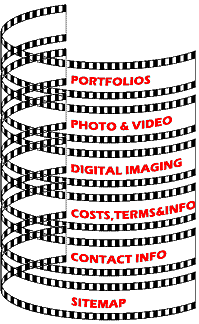 |
Who Owns the Image, Client or Creator?
"confusion over this matter is all too common"
|
|
 Site Map: Know what you're looking for? Find it fast here |
This
year a client of ours switched vendors and is no longer having us produce multi-part forms
for them. In the process of negotiating the purchase of some remaining stock we were
warehousing they also requested "artwork" from a brochure we had produced for
them a couple of years earlier. It was at this point that it became evident that they were
unclear as to whether or not they "owned" the photography we had been hired to
produce for them. In this case after explaining fully to several parties within their
company we came to a friendly conclusion which met their interests and protected mine as
well. But the confusion over this matter is all too common. |
|
| Many times clients are not aware of the rights they are purchasing. They
may see things in the simplest way and fail to read the fine print. As in the example
above, it may cause great confusion and potential hard feelings to discover this well
after the fact. When hired to "create" an interpretation of a concept ("art") I am the author and creator and therefore the sole owner of the copyright of that image, be it a photographic piece of film, print, or computer image (file). My work is protected by the copyright laws of this nation, but more about that in a minute. The client, very reasonably, may presume that he has hired me to produce his vision and interpretation whether it's highly conceptual (broken glass in a purple sky) or very literal (shot of the building). But unless I am hired as "work for hire" and acting as his hand in the creation of the work and a written contract saying so specifically I am the sole creator. While not required, I declare and document this by providing the client with both an estimate prior to the job and an invoice after, each of which specifically indicate that I am the author and copyright owner and am licensing specific rights to them (which may be broad or narrow). In doing this I protect my interests. By controlling the image I can oversee and maintain the quality of a body of work which represents me as an artist and a professional. It also allows me to manage the future use of the images whether by the client, myself or additional parties (some works may be resold as stock, others of proprietary nature may not). The rights licensed and the use of my images while negotiable are in my control. I also have the option of these rights. I have a couple of clients who insist it is in their best interest to obtain all rights including the copyright at the time of purchase. I offer these clients a "buyout" option. The buyout gives them all rights and the original film, leaving me with only the right (as I specifically indicate) to use the image in my own promotion. I cannot resell or even reproduce the image outside of the provisions of the agreement without their permission. For a buyout I typically will request a 200% premium over my fees. This is a high premium to pay, and generally unnecessary, but I have some clients who are all to happy to do so to completely control the images. For clients who contact me and negotiate fees based on "per-use" a buy out may be very practical if they plan to use the image again and again. We of course want to provide the highest level of work and services for our client's. It can be uncomfortable to deal with such issues as these as they may be seen as a wedge to be driven between the parties, but it is best to make everything as clear as possible from the outset to avoid such misunderstanding down the road. It is our responsibility to our clients and ourselves as professionals. |
||
The copyright laws are maintained and upheld by the Library of Congress and the U.S.Copyright Office. Detailed information about the laws can be found on there websites. Here's a link to a page I maintain with links to several of these sites: http://www.proshooter.com/copyrigh.htm "A work that is created (fixed in tangible form for the first time) on or after January 1, 1978, is automatically protected from the moment of its creation and is ordinarily given a term enduring for the author's life plus an additional 70 years after the author's death." USCopyright Office Circular 1 Copyright Basics. |
||
|
||
|
So what's your view? Let me know. Proshooter@gmail.com |
||
| Additional "Useful Articles" can be found on the Sitemap page. |